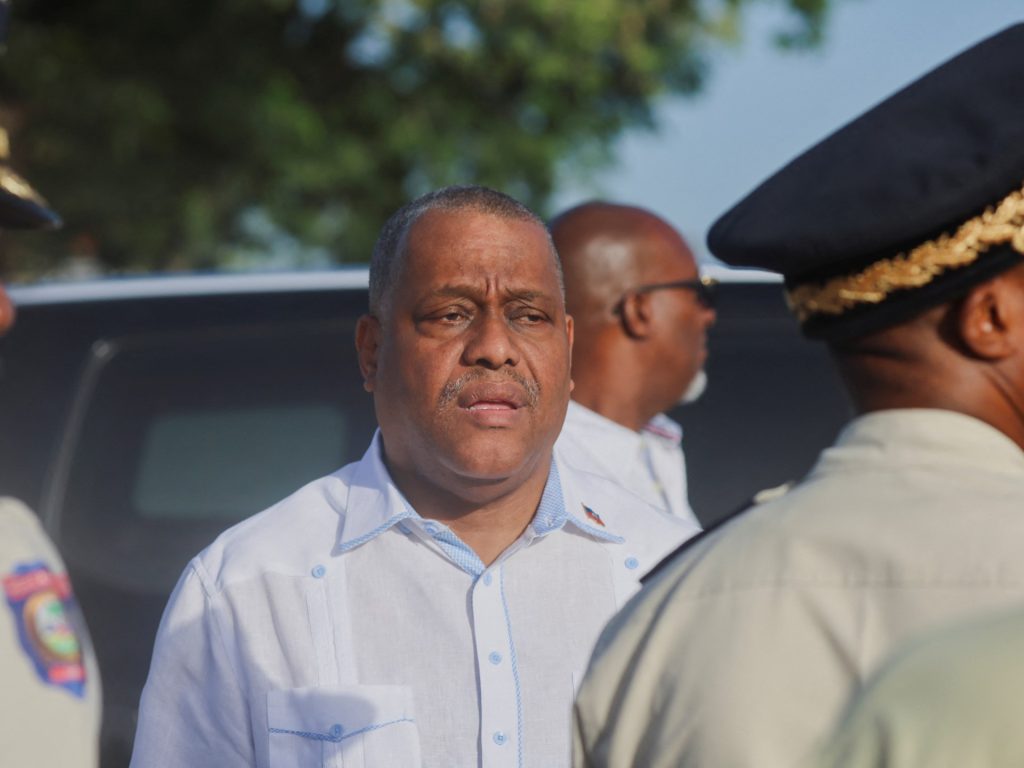A transitional council in Haiti, formed to help the country establish democratic order in the midst of political turmoil and gang violence, has decided to remove interim Prime Minister Garry Conille and replace him with Alix Didier Fils-Aime, a businessman previously considered for the job. The council, composed of nine members, appointed Conille as prime minister in May, but has since been plagued by infighting with the prime minister. The recent decree to replace Conille was signed by all council members except for one, sparking questions about the council’s authority to make such decisions.
The council, led by Leslie Voltaire, has been in conflict with Conille over issues such as cabinet reshuffling and allegations of bribery involving three council members. These three members, accused of demanding bribes from a government bank director, were among those who signed the decree to remove Conille. The scandal has dealt a blow to the council’s credibility and is expected to further diminish public trust in its ability to lead the country during a period of crisis. The power struggle between the council and the prime minister has raised concerns about constitutional legitimacy, as only the Haitian Parliament has the authority to dismiss a prime minister under normal circumstances.
The political turmoil in Haiti is compounded by rampant gang violence that has engulfed the capital city of Port-au-Prince, with armed groups controlling a significant portion of the city. The UN-backed policing mission deployed earlier this year has not been successful in curbing the power of these armed groups, who continue to engage in violent activities such as murder, kidnappings, and sexual violence. The gangs’ stronghold over the country has resulted in widespread displacement and food insecurity, with nearly half of all Haitians experiencing acute food shortages as a result of the violence. More than 700,000 people, including a large number of children, have been forced to flee their homes due to the ongoing conflict.
The deepening crisis in Haiti is further exacerbated by the absence of a functioning Parliament or democratically elected leader, leaving the country in a state of constitutional crisis. The transitional council’s attempts to assert its authority over the prime minister highlight the challenges facing Haiti as it struggles to navigate through a period of political instability and social upheaval. The ongoing power struggles and infighting within the council have created a sense of uncertainty and confusion among the Haitian population, who are grappling with the dual challenges of gang violence and food insecurity.
The international community, including the United Nations and other aid organizations, has expressed concern about the deteriorating situation in Haiti and the failure of the current leadership to address the root causes of the crisis. Efforts to provide humanitarian assistance and support to the displaced population are hindered by the ongoing violence and instability, making it difficult to deliver much-needed aid to those most in need. As Haiti continues to face multiple crises simultaneously, including political turmoil, gang violence, and food insecurity, the urgent need for sustainable solutions and effective leadership becomes increasingly apparent. The resolution of these issues requires a coordinated and inclusive approach that prioritizes the well-being and security of the Haitian people above all else.















